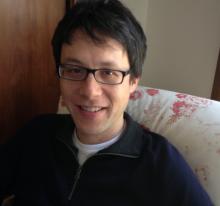Main Content
Offered the chance to rethink an entire graduate program from the ground up, I started by informally canvassing graduate students and faculty in several departments and institutions (including my own) about what they found most dissatisfying in their programs. Responses were varied, running from graduate students’ healthcare benefits to the scanty years of guaranteed fellowship support to the amount and distribution of apprentice teaching by Ph.D. candidates. But the dissatisfactions clustered most thickly around one issue: the graduate seminar. It’s supposed to be a summit experience for all involved, the most immersive and sophisticated scene of teaching and learning we possess. Yet many of the students and faculty I spoke with found graduate seminars exhausting, frustrating, and antiquated.
Their main reasons for feeling this way are recorded in my slides. On some points grads and faculty were in agreement: graduate seminars seemed hostile to innovative pedagogy, premised on writing assignments that didn’t serve students well in their scholarly lives, and overwhelming for students taking (as is often the case in Ph.D. programs) three or four such courses at a time. On other points grads and faculty diverged, and the divergence was revealing. Where many grads found seminars too narrow in their focus, particularly if the course were outside their period or subfield, a number of faculty found seminars too general to be intellectually cutting-edge or useful for their research. Grads spoke of the need for “bread-and-butter” courses that didn’t presuppose they were already deeply read in the subject. Faculty wished for more specialized courses—delicate small portions under heavily reduced sauces. No wonder the banquet table can feel like it’s about to split in half.
My ACL(x) presentation tries to ease that strain by increasing the number of tables and setting each for a distinct kind of course. Students, I propose, might take a mix of broad-gauged, term-long seminars and more specialized half-term tutorials. The latter would be put together on a more ad-hoc basis than seminars, building on the overlapping interests of a faculty member and a handful of students. These shorter tutorials or modules could balance discussion, dedicated writing time, and writing workshop formats in various ways (I provide three versions). Taking a combination of seminars and modules would allow students to distribute their writing more evenly through the term rather than seeing it all pile up in the final weeks. And as I’ve laid it out, they’d be writing in genres (conference papers, a dossier of materials destined to become an article, and eventually an article proper) more closely related than the typical seminar paper to the main forms our scholarship takes.
Plenty remains to be worked out here, including how both students and faculty would be credited for the half-term modules, how they would devise the modules together, and how distribution requirements would need to change. But I’m emboldened by the fact that several of my fellow roundtablists have independently come up with similar suggestions. And given their central importance in the structure of graduate programs, our graduate courses might just be the Archimedean fulcrum at which to press for even broader changes.
